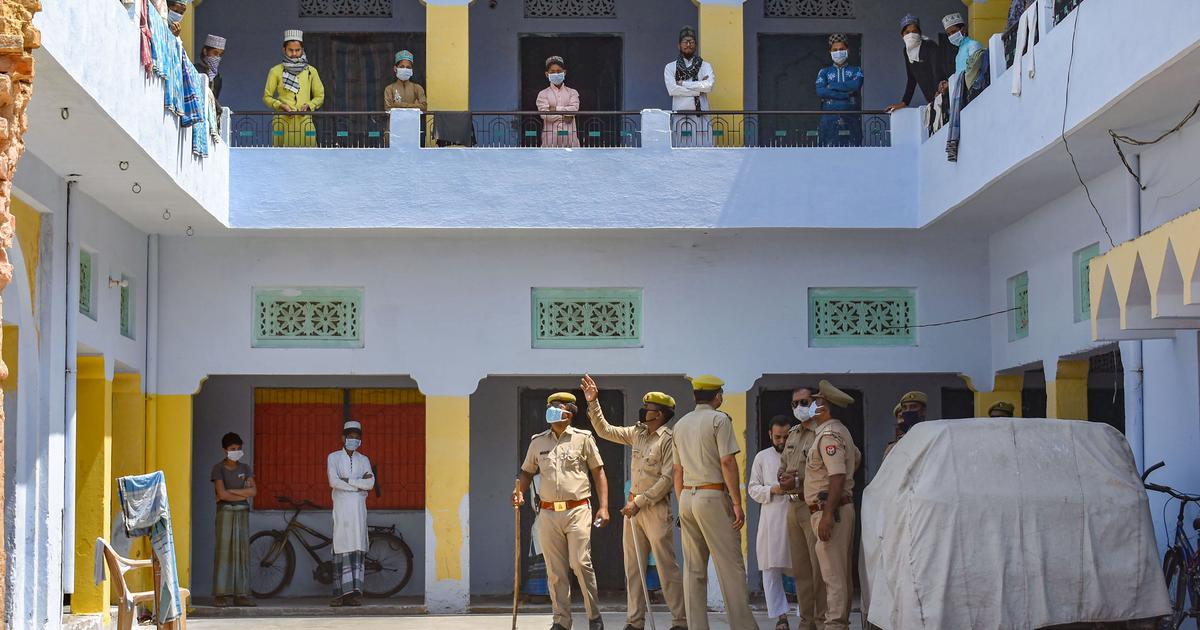India saw highest levels of religious violence linked to Covid-19 in 2020: new report

The Pew Research Center report found that India ranked the worst in the Social Hostilities Index in 2020 with a score of 9.4 out of 10, worse than its neighbours Pakistan (7.5) and Afghanistan (8.0).
Afnan Habib | TwoCircles.net
NEW DELHI — India saw the highest levels of religious hatred during the coronavirus pandemic in 2020, a new report by The Pew Research Center has revealed.
The report, published on Tuesday, studies religious change and its impact on societies around the globe.
“Nearly a quarter of countries used force to prevent religious gatherings during the pandemic; other government restrictions and social hostilities related to religion remained fairly stable,” the report said.
The study found that India ranked the worst in the Social Hostilities Index in 2020 with a score of 9.4 out of 10, worse than its neighbours Pakistan (7.5) and Afghanistan (8.0).
The Social Hostilities Index is calculated by the centre using 13 questions that assess hostilities both between and within religious groups, including sectarian or mob violence, crimes motivated by prejudice against religion, physical conflict over conversions, harassment for wearing religious attire, and other forms of intimidation and violence related to religion.
The report also found "Christians and Muslims, the largest religious groups in the world were harassed in more countries than any other religious groups analyzed."
"In 46 countries and territories, or 23% of all those examined in the study, government authorities used force to impose coronavirus-related bans or limits on religious gatherings in 2020". The research noted the Union Ministry of Home Affairs' decision to isolate 900 members of the Islamic organization 'Tablighi Jamaat' after it held a religious assembly at the Nizamuddin Markaz in Delhi in early 2020.
After the Tablighi Jamaat congregation was held responsible for tens of thousands of coronavirus cases across the nation, the mosque was shut down on March 31, 2020. Because of the incident, the country witnessed an increase in business boycotts and hateful remarks directed against Muslims.
In addition, the Pew Research Center study identified India as one of the three nations, along with Yemen and Indonesia, where pandemic-related deaths of religious minorities occurred in 2020. It also made mention of the two Christians who died in Tamil Nadu following reports that they had been assaulted by police while being held on suspicion of breaking coronavirus regulations.
According to the Central Bureau of Investigation's charge sheet, Jayaraj and Bennix, the two Christians were assaulted so severely that their blood covered the walls. They were then ordered to wash the blood with their garments. The two were subjected to "several rounds of brutal torture," the CBI had said.
The report, while examining countries where authorities accused religious groups of the spread of the virus, revealed that "In Pakistan, Shiite Muslims of Hazara ethnicity who returned from a pilgrimage to Iran were targeted, "scapegoated" and blamed for the spread of the virus by officials in Balochistan province."
On the other hand, India performed slightly better with a score of 5.8 on the Government Restrictions Index, the second criterion on which the report is based. The report found that China, with a score of 9.3 on the index, had the highest degree of government restrictions.
The Government Restrictions Index measures whether governments impose restrictions on religious behaviours or beliefs based on 20 questions. The issues raised concern how far governments go in attempting to regulate religious organizations or persons, forbid conversions, restrict preaching, or obstruct religious affiliation by measures like registration requirements and penalties.
The US Department of State's annual reports on religious freedom and the US Commission on International Religious Freedom, as well as databases and reports from European and UN agencies and several independent, non-governmental organizations, served as the foundation for the Pew Research Center's study.
Afnan Habib is a freelance journalist based in Srinagar, Jammu and Kashmir. He tweets @afnanhabib_
